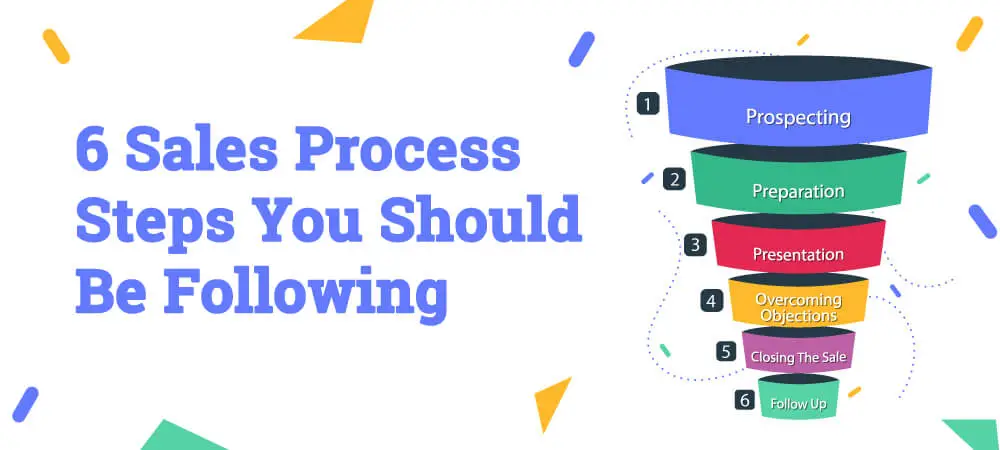You’ve been pitching wonderfully, but then there are objections, So how do you manage objections while pitching? No doubt, objections are featured as one of the stereotypical roadblocks in sales. Be it the price issue or the skepticism over the product’s benefits, handling objections appropriately is the success mantra of a sale that takes place through a sales pitch. In this blog, we will be exploring the strategies and techniques on how one can confidently handle objections and drive them as an opportunity to close the deal. Mastering objection handling enables you to build trust with a prospective customer and increase sales success finally.
Key Takeaways:
1) Listen Actively: Pay close attention to the objections that the prospect has during your presentation.
2) Empathy with the prospect: You empathize and display understanding for the concerns raised by the prospect.
3) Offer solutions: Provide solutions that would remove the objections raised and show how your product or service could meet the customers’ needs.
4) Prepare in advance for common objections: You prepare in advance for common objections and have ready responses to present them in an effective manner.
5) Clarify doubts: Ask difficult questions in order to clarify any doubts or apprehensions a prospect may have and information which will help alleviate any fear.
Understanding Objections
Definition and Importance of Handling Objections
Objections are simply part of the sales job for any salesperson. Objections refer to issues or reservations which often pop up during a sales pitch by a potential customer. An effective response to objections can make all the difference between closing a deal or losing a potential customer. It is by responding to objections with confidence and information that you are able to open up trust and credibility to prospects.
Types of Common Sales Objections
Handling objections effectively is a factor of understanding the common objections people are likely to put forth during a sales pitch. The most common objections are the issues of price, competition, relevance of the product/service, time, and trust. By anticipating these objections, you can prepare well for reaction to such an objection arising during your pitch. Consider objections part of the natural process of sales – here once again, an opportunity to show why your product or service has value.
| Common Sales Objections | Explanation |
|---|---|
| Price | Concerns about cost and value for money. |
| Competition | Comparisons with other products or services in the market. |
| Product/Service Relevance | Questions about how the offering meets the customer’s needs. |
| Timing | Concerns about the right time to make a purchasing decision. |
| Trust | Issues related to credibility, reliability, or reputation. |
Pre-Facing Objections
Research and Understanding Customers
The key to preparing for objections in a sales pitch is doing the research and getting good insight about your customer. The more a sales person knows ahead of time about the pain points, needs, and objections of its customers, the better he can tailor his pitch to fill their needs.
Anticipating and Preparing Responses
For this reason, responses to objections must be built and set for every possible objection that may be hurled against your sales pitch. Anticipating objections beforehand will help you present prepared responses to common ones that your clients will raise during their discussions with you.
Being proactive about objections can turn what otherwise might have been a challenge to your business into an opportunity to engage further with your clients and tell them more about the value of your product or service.
Handling Objections Strategies The Listen-Acknowledge-Explore-Respond Method
Proper preparation of a strategy to overcome objections at the sale-pitching stage is very essential. Listen-Acknowledge-Explore-Respond is a best approach to overcome objections. Listen to what the objection is, without interrupting the customer’s statement of objection. Acknowledge the objection to let the customer feel heard and understood. Explore the root cause of the objection through probing questions. Finally, respond with a customized solution to clear their specific doubts.
Reframing Objections as Opportunities
Handling objections during a sales pitch really ought to be taken as opportunities for one to get deeper in with the customer. If the customer’s objection begins, it merely presents one with an opportunity to really dig in there and learn his needs, preferences, or whatever it may take for him to place a purchase order in you. Opportunities are, in this case, reframeworks salespeople can use in demonstrating inquisitiveness about the problems the customer has on his mind and how the product or service could better work to address the objection.
Rebuilding objections as opportunities enable salespeople to gain trust from the customer and show their ability in problem-solving. It also allows sales professionals to be different from others, which is done simply by showing a customer-centric approach focused on the needs and concerns of the customer.
Effective Communication Skills
Building Rapport and Trust
Many salespeople know that establishing rapport and gaining trust of the prospects is the highest aim. Establishing a personal connection helps in laying down a foundation of trust which runs through objectional levels smoothly. Building rapport is all about active listening, showing interest, and finding common grounds with the prospect.
Verbal and Non-Verbal Communication Techniques
Then an effective communication tool would be both verbal and non-verbal approaches. For instance, in the use of verbal communication, there must be clear and concise terms, and one should ask open-ended questions rather than close-ended ones to allow attentive listening to concerns or fears that the prospect may have. Also, non-verbal cues contribute towards this approach such as body language, the tone of voice, and even eye contact to show comfortableness with the idea.
Building trust through effective communication requires many considerations. Note your tone and body language or presence. If you truly hear the prospect and you keep a positive body language, this will let the prospect see that you genuinely care about their needs. Being successful with both verbal and non-verbal techniques will help you be better prepared to handle objections and build trust with prospects.
Specific Objections
Price Objections
Price-related objections are common for any salesperson while pitching. When there is an objection over the price being too high, it has to be drilled into them how much value the product or service will bring to their business. Speaking with them regarding return on investment and unique selling points makes the price even better for this prospect in exchange for long-term benefits of his purchase.
Product or Service-related Objections
Service-related objections will typically revolve around perceived misinformation or lack of knowledge about the product or service being offered. In order to overcome such objections, sales professionals must be equipped with great explanations and demonstrations as to what will offer the features and benefits from what they are selling. Then you will find that listening to the prospect’s objection and framing a suitable response can only build trust and credibility and eventually allow for a successful sale.
This approach not only crosses the objection line but also establishes the salesperson as an expert and authority to the prospect. By nipping objections in the bud and answering questions they may have, you rid them of any doubts and drive the purchasing decision into being confident.
Leaning from Objections
Analysis and Changing the Sales Strategy
Do not forget that objections are not roadblocks, but opportunities for growth. Any objections that are encountered at the sales pitch must be treated as useful feedback that can be used in refining the approach to sales. Do take time to study the objections of the potential customer, and consider how you can alter the pitch to make the potential customer comfortable taking such a step. Understand the basis of objections, and you will then be better poised to fine-tune your sales approach and try to meet your prospect’s better needs and, therefore, close in. Continuous Learning Through Feedback
Handling objections, in general, is more of an ongoing learning and improvement process. You will learn this by soliciting feedback not only when your sales pitches are successful but also when they fail. In both cases, you get ample insights into where you can improve and grow. What you get from objections is ample feedback where the prospects tell you what is wrong, and why their supplier would not work out. Objections can give you a lot of information to help sharpen your sales techniques, hone your communication skills, and thereafter help you perform better as a salesperson. So, learn to embrace objections for better opportunities to change, grow, and develop in your careers as salespeople.
In Short
Ultimately, handling objections during a sales pitch requires preparation, active listening, and a solutions-oriented mindset. By acknowledging and addressing objections with empathy and confidence, sales professionals can build trust and credibility with potential customers. For more insights on common sales objections and strategies to overcome them, check out 20 Examples of Common Sales Objections With ….






